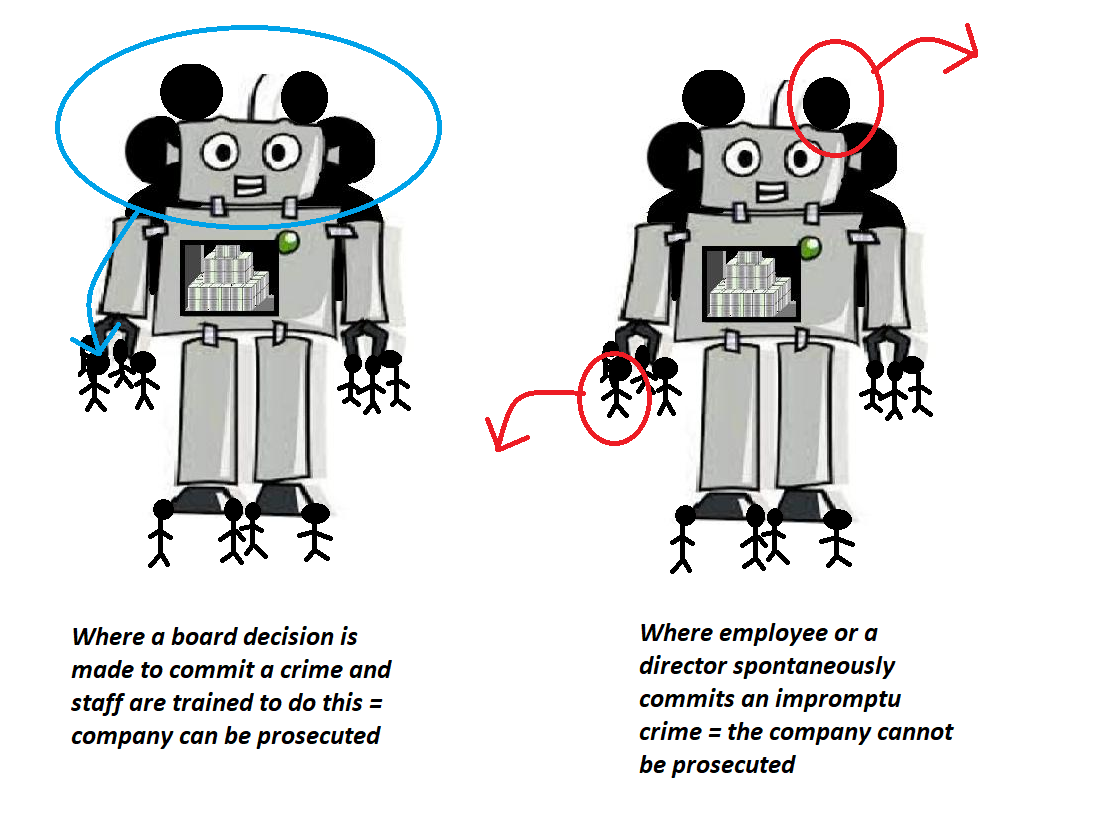Tesco Supermarkets Ltd v Natrass, [1971] UKHL 1
Citation:Tesco Supermarkets Ltd v Natrass, [1971] UKHL 1
Rule of thumb:When can a company be prosecuted for a crime? Where company directors have trained its staff improperly to commit a crime, then the company can be deemed to have committed a crime. A company can only be attributed to have committed a crime where its staff have been trained to carry out these offences as part of a formal training manual, not where there has been a mix-up and a staff member or director has accidentally veered into committing a crime.
Background facts:
The basic facts were that Tesco were advertising a reduced product in limited supply in store – even although there were more expensive one’s in store once the reduced products ran. Manager in store were trained to take down the sign when the reduced product ran out. Under the Trade Descriptions Act 1968 advertising products as being reduced which were not in the shop was deemed to be a criminal offence.
Arguments:
Tesco argued that the company should not be prosecuted for this offence because it was not one of the directors who was responsible for this, but one of the managers in store who had made a mistake.
Judgment:
The Court upheld the arguments of Tesco as being correctly made. This confirms the rule that for a company to be prosecuted it actually has to be shown that it was the directors who committed the offence through the strategy they deployed rather than the lower-level managers. The Court confirmed that where directors are so reckless in carrying out their operations then the company as a person can actually be prosecuted because the directors are the ‘controlling mind’ of the company.

Ratio-decidendi:
‘Normally the board of directors, the managing director and perhaps other superior officers of a company carry out the functions of management and speak and act as the company. Their subordinates do not. They carry out orders from above and it can make no difference that they are given some measure of discretion. But the board of directors may delegate some part of their functions of management giving to their delegate full discretion to act independently of instructions from them. I see no difficulty in holding that they have thereby put such a delegate in their place so that within the scope of the delegation he can act as the company. It may not always be easy to draw the line but there are cases in which the line must be drawn. Lennard’s case [1915] AC 705 was one of them.’ (Lord Reid)
Warning: This is not professional legal advice. This is not professional legal education advice. Please obtain professional guidance before embarking on any legal course of action. This is just an interpretation of a Judgment by persons of legal insight & varying levels of legal specialism, experience & expertise. Please read the Judgment yourself and form your own interpretation of it with professional assistance.

